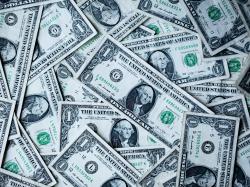Big Wall Street Banks Do Not Want Fed-Backed Digital Dollar Crypto Alternative - Read Why
Author: Akanksha Bakshi | May 24, 2022 07:52am
Wall Street bankers are urging the U.S. government to postpone the debut of a digital dollar, arguing that a virtual currency backed by the Federal Reserve will drain hundreds of billions of dollars from the banking system, reported Bloomberg.
What happened: According to the American Bankers Association and the Bank Policy Institute, an American central bank digital currency, or CBDC, would be a direct rival to private bank deposits, making credit less available to businesses and households.
"As we have evaluated the likely impacts of issuing a CBDC it has become clear that the purported benefits of a CBDC are uncertain and unlikely to be realized, while the costs are real and acute," the ABA said in a May 20 letter to the Fed.
"Based on this analysis, we do not see a compelling case for a CBDC in the United States today," the ABA added.
In March, the White House said in an executive order on cryptocurrency policy that it placed the "highest urgency" on research and the possible development of a U.S. digital dollar.
While supporters say that a Fed-backed digital currency would help ensure the dollar's dominance while countries like China develop their versions, Wall Street trade groups say that such a step could backfire.
Even if banks and other financial institutions function as intermediaries, any funds placed in a CBDC account by their customers cannot be used to support loans or other economic investments, according to the groups.
Furthermore, the parties believe that capping the size of CBDC accounts to limit fallout will be ineffective. The ABA anticipated that a $2,500 deposit cap would still drain $446 billion from traditional banks, and a $10,000 cap would result in more than $1 trillion in deposits leaving the system.
Photo by Sharon McCutcheon on Unsplash
Posted In: FTXO IAT KBE KBWR QABA SPY





